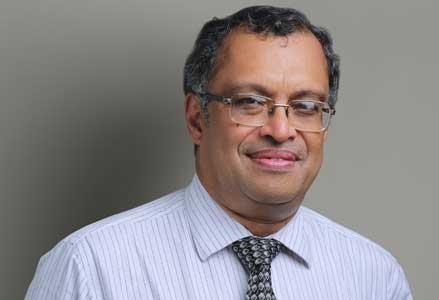|
|

|
|

| Article / Health / Mental Health | Post Comments |
Alzheimer's Disease - Need A Multi-pronged Approach |
|||
| By : Aster Medcity , Kochi , India 20.9.2017 Phone:0484 669 9999 Mail Now | |||
| Kuttisahib Road, Near Kothad Bridge, South Chittoor, Cheranalloor, Kochi, Kerala 682027 | |||
 Dr. Mathew AbrahamSenior Consultant, Neurologist Aster Medcity, Kochi The famous writer Devdutt Patanaik has described Alzehimer’s as ‘the death of imagination’. Alzheimer’s takes away years, memories, hopes, possibilities to the stage that the patient can’t work, can’t live alone and is totally dependent, like a baby. What is Alzheimer's disease? Alzheimer's is the most common form of dementia, a group of disorders that have impairment in mental function, and accounts for 60 to 80 percent of dementia cases. Alzheimer’s is characterized by impaired memory, apathy and depression, with a slow gradual onset. It is a complex and frightening condition that is irreversible and eventually affects the ability to carry out even the simplest tasks. With demographic aging picking up momentum in India, the problem of dementia is set to rise. The numbers of persons with dementia double every 5 years of age and so India will have one of the largest numbers of elders with this problem. The prevalence of dementia increases steadily with age and higher prevalence is seen among older women than men. Only 2% of cases start before the age of 65 years. An estimated 4 million people are affected by dementia in India and this number is expected to double by 2030. Alzheimer’s disease is named after Dr. Alois Alzheimer who noticed changes in the brain tissue of a woman who had died of an unusual mental illness in 1906. Her symptoms included memory loss, language problems, and unpredictable behavior. On examining her brain, he found many abnormal clumps, called amyloid plaques, and tangled bundles of fibers, now called neurofibrillary tangles. These result in a loss of connections between nerve cells in the brain. The loss of connection results in messages not being transmitted with consequential problems with memory, thinking and behaviour. Many famous people have been diagnosed with Alzheimer’s disease. They include ex-American President Ronald Reagan, Hollywood actors Charles Bronson, Charlton Heston and Peter Falk, and former British Prime Minister Harold Wilson. Symptoms In the majority of cases, symptoms first appear in the mid-60s. There are some warning signs and symptoms of which one or more signs may appear in a different degree. Often the first symptom is a failure of memory, specifically difficulty in recalling information that has recently been learned. They may forget to pay monthly bills which they regularly paid. They may find it difficult to complete familiar tasks at home or work. They may lose their way or get confused while driving to a known place. Other signs of memory loss include forgetting important dates or events; asking for the same information over and over; increasingly getting serious enough to interfere with life on a day-to-day basis. In addition to memory loss, symptoms include trouble completing tasks that were once easy, difficulty solving problems even simple ones like counting the right amount of money to be paid, changes in mood or personality, withdrawing from friends and family, problems with communication, either written or spoken, confusion about places, people and events, and visual changes with trouble understanding images. Treatment Currently, there is no cure for Alzheimer's. But with early detection, patients can get the maximum benefit from available treatments that may provide some relief of symptoms and help with both cognitive and behavioural symptoms to maintain a level of independence for a longer period. It is important to have the understanding how Alzheimer’s affects the patient and those around him. While the patient experiences ill health, disability, impaired quality of life and reduced life expectancy, his family also faces a major burden of the illness that affects their quality of life. But the family forms the cornerstone of care and support of the patient and this is especially true in India where the patient continues to live with the family. Care of the patient is usually a joint effort by the adult members of the family. But there is an increasing demand for paid caregivers, more so in urban India. There is an increased need for formal training programmes
for the regular care givers and those who closely associate with the patients.
The care required includes support with personal activities of daily living like
eating, washing, dressing, grooming and toileting, activities of daily living
like cooking, shopping, laundry ,taking care of household finances, safeguarding
personal properties and general supervision. There are limited number of
residential care services run by NGOs, day care centers, support groups and
memory clinics. Advanced hospitals like Aster Medcity have specialist clinics
that help to address the problem as well as support groups to provide solace and
support to care givers and family members.
|
|||